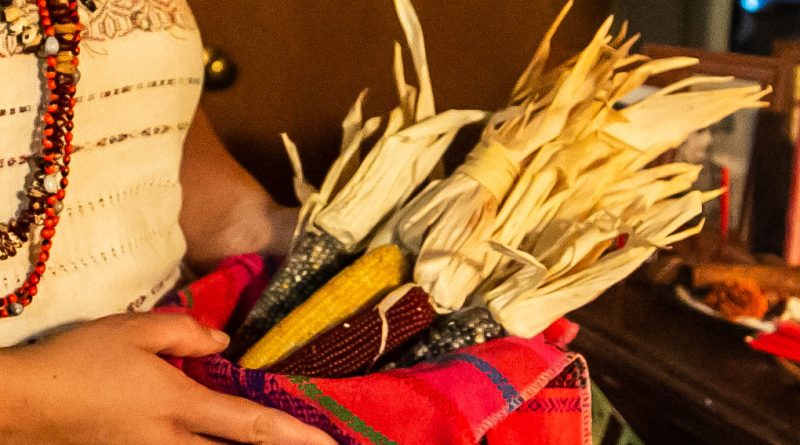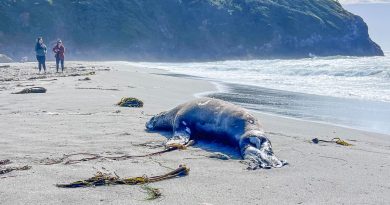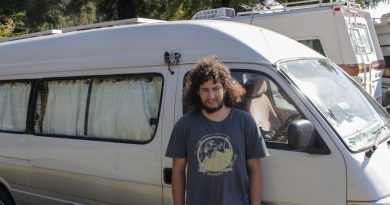La Cocina Nuestra: A new course for Spring 2022
For students interested in food, history and Indigenous culture, the Spanish department is introducing a new class in the Spring 2023 semester at Cal Poly Humboldt, La Cocina Nuestra (SPAN 480).
As described on the course poster, students who take SPAN 480 will learn about the sustainable methods and ethnocultural techniques that the Indigenous peoples of the Americas used for thousands of years to fish, hunt, forage, grow and prepare food in order to nourish, celebrate and heal.
“Food brings us all together– and so, I think that that focusing on food as an important part of culture is very worthwhile and we have someone who is a foodie, he loves food and he’s into cooking and exploring recipes and things like that,” said Matthew Dean, the programs leader for the Department of World Languages and Cultures (WLC).
The course is three units, has no prerequisites and is being taught in English by Russel Carlos Gaskell, a faculty member of the WLC Spanish program. However, he is going to bring in community speakers who have first hand knowledge about certain aspects of the course.
The class will be on Thursdays from 5:30 p.m. to 8:20 p.m. in the Behavior and Social Sciences building room 166 for the first five to six weeks of the class. The following 10 weeks will be at the D Street Neighborhood Center on 1301 D St, Arcata, CA 95521. The maximum number of students allowed to take this course is 25 people.
The concept of the course is to bring students back to the pre-Columbian Americas from the Aleutian Islands in Alaska to Patagonia in South America. Students are going to learn about the techniques used to gather and hunt for foods as well as the ingredients and cooking methods used by the Indigenous peoples. Students will use that information combined with their intuition to try and recreate dishes that people may have been eating back then.
The first five to six weeks of the class will be theoretical learning, reading the required texts and listening to community speakers. The next five weeks will be hands-on cooking experience to try to recreate the dishes using one’s own intuition and experience with cooking. The last five weeks the students will teach the class their own home recipes from their ethnic background.
“Which will make it a unique course in that it’ll be different every time we run it or offer it because the students will be different, so there’ll be different perspectives that are coming in constantly to the course,” Gaskall said. “And we’re gonna learn a lot anyway from each other just throughout the course. This is the first time that we’re doing it so we’ll see where it leads us.”
One of the hopeful outputs of the course will be a recipe book. This recipe book will include a glossary of all of the terms and food items that were introduced during this course. The recipe portion of the book will include the pre-columbian recipes they tried to recreate and the recipes of the students that participated.
It will include pictures, lists of ingredients and familial anecdotes associated with the dish such as when they eat it, who they eat it with, how long the family has been using this recipe, where they learned the recipe and such.
For more information, click the link.




